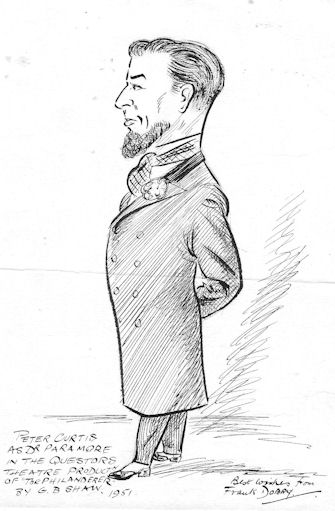Cast:
Diana Benn, Peter Curtis, Michael Davis, Alfred Emmet, Theresa Heffernan, Peggy Pope, Edmund Scrivener, Clifford Webb Production Team:
Dorothy Barnett, Janet Beard, Stella Birkett, Alene Cameron, Eileen Fisher, Michael Found, Albert Gibbs, Barbara Gilpon, Margery Goldsby, Joyce Hornett, Gerry Isenthal, Beryl Midgely, Ruth Milner |

